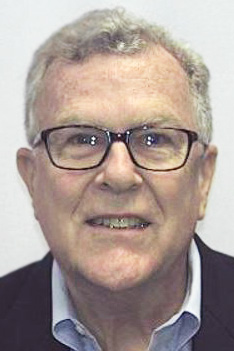

 With DNS abuse a topic of increased concern throughout the community, any controversy over adopting the Uniform Rapid Suspension System (URS) for all generic top-level domains (gTLDs) seems misplaced. The URS was designed as a narrow supplement to the Uniform Domain-Name Dispute Resolution Policy (UDRP), applicable only in certain tightly defined circumstances of clear-cut and incontrovertible trademark infringement involving the registration and use of a domain name.
With DNS abuse a topic of increased concern throughout the community, any controversy over adopting the Uniform Rapid Suspension System (URS) for all generic top-level domains (gTLDs) seems misplaced. The URS was designed as a narrow supplement to the Uniform Domain-Name Dispute Resolution Policy (UDRP), applicable only in certain tightly defined circumstances of clear-cut and incontrovertible trademark infringement involving the registration and use of a domain name.
 The .AU Domain Administration (auDA) will soon implement new .AU domain administration licensing rules either late this year or early next year. These rules apply to new registrations and around 3 million existing domain names in the com.au, net.au, org.au, and more .AU namespaces... Previously, an Australian trademark application or registration may constitute the required Australian presence for an .AU domain name, but the domain name need not match the trademark.
The .AU Domain Administration (auDA) will soon implement new .AU domain administration licensing rules either late this year or early next year. These rules apply to new registrations and around 3 million existing domain names in the com.au, net.au, org.au, and more .AU namespaces... Previously, an Australian trademark application or registration may constitute the required Australian presence for an .AU domain name, but the domain name need not match the trademark.
 I have returned to the subject of the title on a number of occasions and it is worth revisiting. Like judicial proceedings, the substance of disputes under the Uniform Domain Name Dispute Resolution Policy (UDRP) and Panel determinations are publicly available. The Internet Corporation for Assigned Names and Numbers (ICANN) mandates in its Rules that all decisions must be delivered to the parties within "three business days" of their receipt of the decision and posted on providers' websites.
I have returned to the subject of the title on a number of occasions and it is worth revisiting. Like judicial proceedings, the substance of disputes under the Uniform Domain Name Dispute Resolution Policy (UDRP) and Panel determinations are publicly available. The Internet Corporation for Assigned Names and Numbers (ICANN) mandates in its Rules that all decisions must be delivered to the parties within "three business days" of their receipt of the decision and posted on providers' websites.
 The Internet Commerce Association has been actively involved for the last four years on the ICANN Working Group reviewing the Uniform Rapid Suspension (URS) policy and the Uniform Domain Name Dispute Resolution Policy (UDRP). The Working Group is currently wrapping up its review of the URS. The UDRP will be reviewed in an upcoming second phase.
The Internet Commerce Association has been actively involved for the last four years on the ICANN Working Group reviewing the Uniform Rapid Suspension (URS) policy and the Uniform Domain Name Dispute Resolution Policy (UDRP). The Working Group is currently wrapping up its review of the URS. The UDRP will be reviewed in an upcoming second phase.
 Apple announced its decision to trust only one-year digital certificates on its Safari browser in February 2020. This decision created a domino effect, with Mozilla and Google following suit; certificate providers announced they would not issue two-year certificates after Aug. 19, 2020. We wrote an article in March to help brands to prepare for this change.
Apple announced its decision to trust only one-year digital certificates on its Safari browser in February 2020. This decision created a domino effect, with Mozilla and Google following suit; certificate providers announced they would not issue two-year certificates after Aug. 19, 2020. We wrote an article in March to help brands to prepare for this change.
 CENTR has published a white paper separating registry lock services into two standardized models. This categorization and the included recommendations can help top-level domain registries (re)design their registry lock services. The aim of the paper is to reduce fragmentation in implementation between registries to explain the value of registry lock to domain holders more easily.
CENTR has published a white paper separating registry lock services into two standardized models. This categorization and the included recommendations can help top-level domain registries (re)design their registry lock services. The aim of the paper is to reduce fragmentation in implementation between registries to explain the value of registry lock to domain holders more easily.
There are two kinds of new domain name extensions: those dedicated to selling domain names through the network of accredited Registrars and those dedicated to a personnel use. I call these "dotBRANDs" or ".brand" new gTLDs since they are used - most of the time - by Trademarks for their own benefit. This article focuses on .BRAND new generic Top-Level Domains. In the ICANN vocabulary, these are "Registry Agreements with Specification 13".
 One of the "fathers of the internet," Vint Cerf, in a September 2019 article he published, said: "Today, hackers routinely break into online accounts and divert users to fake or compromised websites. We constantly need to create new security measures to address them. To date, much of the internet security innovation we've seen revolves around verifying and securing the identities of people and organizations online.
One of the "fathers of the internet," Vint Cerf, in a September 2019 article he published, said: "Today, hackers routinely break into online accounts and divert users to fake or compromised websites. We constantly need to create new security measures to address them. To date, much of the internet security innovation we've seen revolves around verifying and securing the identities of people and organizations online.
 It, perhaps, does not have to be said that cybersquatting is an intentional tort. No one would expect the respondent to admit unlawful intention, but complainant's proof must nevertheless support that contention. The Panel in Hästens Sängar AB v. Jeff Bader / Organic Mattresses, Inc. FA2005001895951 (Forum July 31, 2020) reminds us that it takes more than bad faith use of a domain name to find cybersquatting.
It, perhaps, does not have to be said that cybersquatting is an intentional tort. No one would expect the respondent to admit unlawful intention, but complainant's proof must nevertheless support that contention. The Panel in Hästens Sängar AB v. Jeff Bader / Organic Mattresses, Inc. FA2005001895951 (Forum July 31, 2020) reminds us that it takes more than bad faith use of a domain name to find cybersquatting.
 On June 3, 2020, EURid, the registry for .EU domains, published its timeline and action plan to withdraw and delete .EU domains registered to entities and individuals located in the U.K. ... Following the .EU regulations that were published on March 29, 2019, registrations of .EU domain names may be held by EU citizens, citizens of Iceland, Liechtenstein, and Norway, independent of their place of residence -- as well as organizations that are established in the EU.
On June 3, 2020, EURid, the registry for .EU domains, published its timeline and action plan to withdraw and delete .EU domains registered to entities and individuals located in the U.K. ... Following the .EU regulations that were published on March 29, 2019, registrations of .EU domain names may be held by EU citizens, citizens of Iceland, Liechtenstein, and Norway, independent of their place of residence -- as well as organizations that are established in the EU.